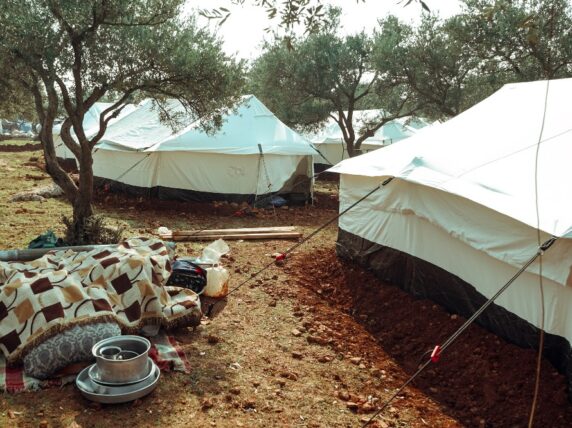7 recommendations for climate resilience programmes
From erratic weather that threatens food production, to rising sea levels that increase the risk of catastrophic flooding, to slow onset droughts that exacerbate conflict in already sensitive regions, the impacts of the climate crisis are global in scope and unprecedented in scale.
Climate change is bringing a new level of complexity to international development work and threatens to undo decades of development progress.
Resilience is an integrated approach that allows us to deal with complexities across multiple scales. Resilience helps NGOs support communities to anticipate, absorb, adapt and transform in the face of environment shocks and stresses.
There is a lot to learn from resilience programming in terms of supporting communities to adapt to changing climates.
In September 2018, the DFID-funded Building Resilience and Adaptation to Climate Extremes and Disasters (BRACED) programme, ODI and the Bond Resilience Learning Group hosted a workshop to explore what has been learned from designing and delivering large-scale climate adaptation and resilience programmes.
The workshop brought together climate resilience practitioners and donors from over 25 organisations to consider recommendations for future resilience programming by exploring some fundamental approaches to supporting resilience. The workshop also considered how programmes can be adaptive to changing and challenging contexts.
The group’s recent report is a product of that learning and summarises discussions from the workshop, providing lessons for designing and delivering future resilience programmes. The report also draws on lessons from previous collective learning within the Bond Resilience Learning Group.
Subscribe to our newsletter
Our weekly email newsletter, Network News, is an indispensable weekly digest of the latest updates on funding, jobs, resources, news and learning opportunities in the international development sector.
Get Network NewsRecommendations for building resilience into programmes
- Resilience takes time
Resilience isn’t easy. Programmes that truly embed resilience need longer project cycles and NGOs must have more time to deliver greater impact. Time is also needed to establish partnerships with local stakeholders. - Downward accountability and learning:
NGOs need downward accountability when working with partners and communities. Reporting systems must include accountability to communities and partners. We also need an environment to foster learning and ensure this gets integrated back into the programme cycle. - Better coordination with donor countries:
We need local DFID country office buy in. We must improve our interaction with donor country offices, rather than operating as a stand-alone isolated global programme. - More flexibility:
Resilience programmes require the ability to work flexibly, as they require anticipating and responding to changing priorities and contexts. Budgets should be flexible and allow for adaptive management, contingency and crisis modifiers. - Targeting:
Bottom-up resilience building must ensure the most vulnerable are identified and given a voice, so that underlying causes of vulnerability are addressed. We need to mainstream inclusion in programme processes to consider gender, age, and the most vulnerable, to ensure those most at risk are not further marginalised - Capacity building:
Capacity building should focus on empowerment not just transfer of skills - Policy and influencing:
Policy influence must be integrated with programme outcomes, not tackled separately. It must include empowering communities to advocate for improved policies and services, capitalising on the transformational potential of resilience.
Read our full learning paper on climate resilience programming.
The Bond Resilience Learning Group brings together agencies, academics and companies to share experiences and generate learning about what good resilience work looks like. Bond members can join for free.
Category
News & Views



